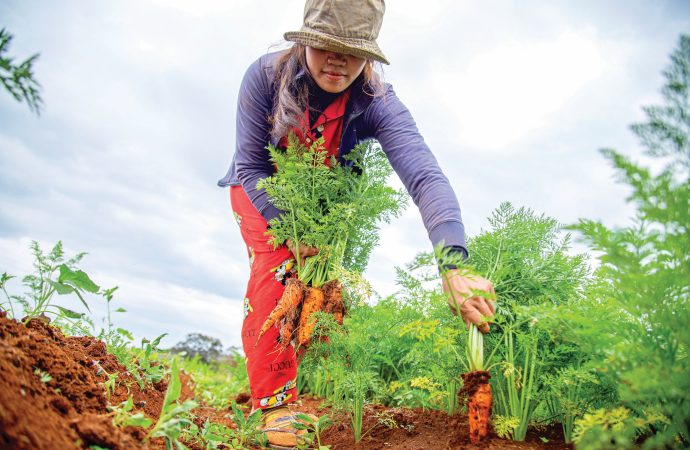In recent years, there has been a growing movement towards sustainable gardening practices that prioritize environmental responsibility and social good. One such practice is the recycling of yard waste, which can be turned into compost that helps to fertilize gardens and reduce the amount of organic waste that ends up in landfills. But what if
In recent years, there has been a growing movement towards sustainable gardening practices that prioritize environmental responsibility and social good. One such practice is the recycling of yard waste, which can be turned into compost that helps to fertilize gardens and reduce the amount of organic waste that ends up in landfills. But what if this compost could also be used to benefit those in need?
That’s the idea behind a new initiative that has been gaining traction across the country: turning recycled yard waste into compost that is then donated to food banks and community gardens. By doing so, gardeners and landscapers can not only reduce their environmental impact but also contribute to the fight against food insecurity.
The process is simple. Gardeners collect yard waste such as leaves, grass clippings, and branches and deposit them in a compost bin or pile. Over time, the waste breaks down into nutrient-rich compost that can be used to improve soil quality and grow healthy plants. Once the compost is ready, it can be donated to local food banks and community gardens, where it can be used to grow fresh produce for those in need.
This initiative has been met with enthusiastic support from both gardeners and food bank organizations. Gardeners are excited to put their yard waste to good use and contribute to their communities, while food banks and community gardens benefit from the nutrient-rich compost that helps to grow more food for those who need it most.
There are many benefits to this initiative beyond the obvious environmental and social advantages. Recycling yard waste into compost can save gardeners money on fertilizers and reduce the need for chemical pesticides, while also reducing greenhouse gas emissions from landfills. And by donating the compost to food banks and community gardens, gardeners can help to promote healthy eating habits and food security in their communities.
Overall, the recycling of yard waste for a good cause is a win-win for everyone involved. Gardeners can reduce their environmental impact and contribute to their communities, while food banks and community gardens benefit from the nutrient-rich compost that helps to grow more food for those in need. It’s a small but meaningful step towards a more sustainable and equitable future.

















Leave a Comment
Your email address will not be published. Required fields are marked with *